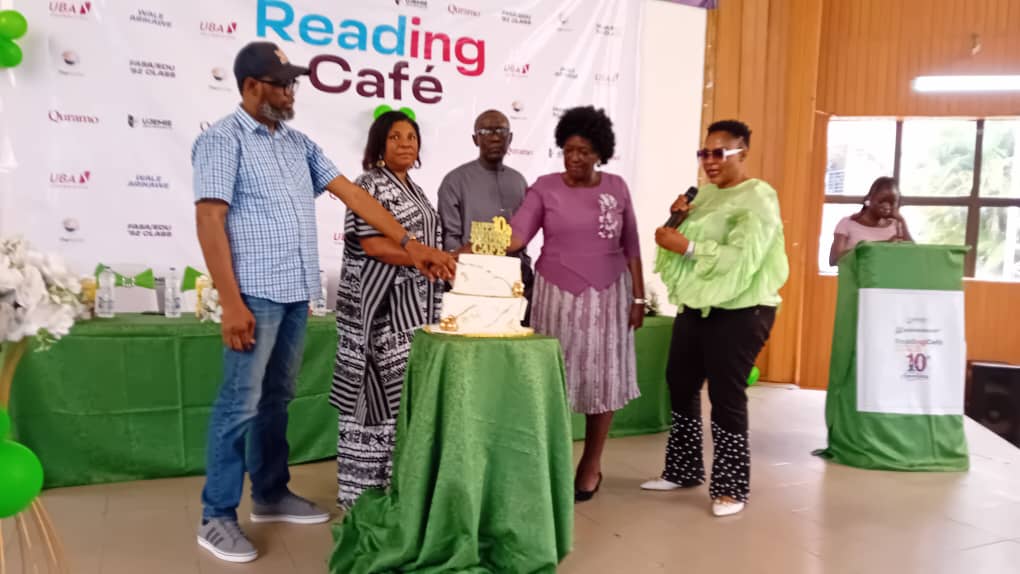Winner of the 2024 Nigeria Prize for Literature, Olubunmi Familoni, alongside other intellectuals, has urged the three tiers of government and corporate organisations to invest more in promoting reading and creative writing as a strategy for national development.
They made the call during the 10th anniversary of Reading Café 2025, organised by Finishedwork Enterprises in collaboration with the National Association of Students of English and Literary Studies, according to a statement on Sunday.
The event, supported by the United Bank for Africa and Quramo Ujeme Media Services Limited, featured poetry recitations, drama, a panel session, and other literary activities.
Other speakers included literary scholar and convener of the literary summit, Mrs Lechi Eke; Associate Professor at the University of Lagos, Prof. Nurayn Fola Alimi; and Deputy Director of Library Services at the Nigerian Institute of International Affairs, Dr. Favour Okafor.
They stressed that increased investment in reading would positively engage Nigerian youths and reduce the likelihood of their involvement in crime and other anti-social behaviours, including insecurity.
They also warned against drug abuse, describing it as a menace with far-reaching consequences for both individuals and society.
Familoni said encouraging a strong reading culture could help tackle social issues such as drug addiction, hooliganism, and insecurity. He cited examples from African-American communities in the United States, where access to libraries and bookshops has been used to steer young people away from crime and gang involvement.
“There is a need to address the waning reading culture in Nigeria. More awareness should be created about the importance and positive impacts of reading. Books should also be affordable,” he said.
“Government and corporate organisations should invest in acquiring and distributing books, subsidising prices, and improving the state of libraries. Such investment will improve the reading culture and help in nation-building.”
Familoni added that initiatives like the Reading Café should be held more frequently to sensitise the public and promote literacy.
Eke also emphasised the need for more investment in education and reading by both government and the private sector. She described creative writing as a vital tool for sharpening the intellect of students and keeping young people intellectually engaged and away from negative behaviours.
She noted that the Reading Café, now in its 10th edition, was conceived to foster a culture of reading among young people. She expressed appreciation to UBA, other corporate sponsors, individuals, friends, relatives, and Christian leaders for their support. She also thanked Bishop Mike Okonkwo and his wife, Bishop Peace Okonkwo, for their prayers and support for the initiative.
Prof. Alimi stated that reading and creative writing help shape individuals into responsible citizens and contribute to building a better society. He urged students to remain focused, read extensively, and represent their institutions honourably.
Dr. Okafor, on her part, condemned drug abuse and urged students to avoid the destructive habit, noting that early exposure to drugs often leads to a lifetime of addiction.















